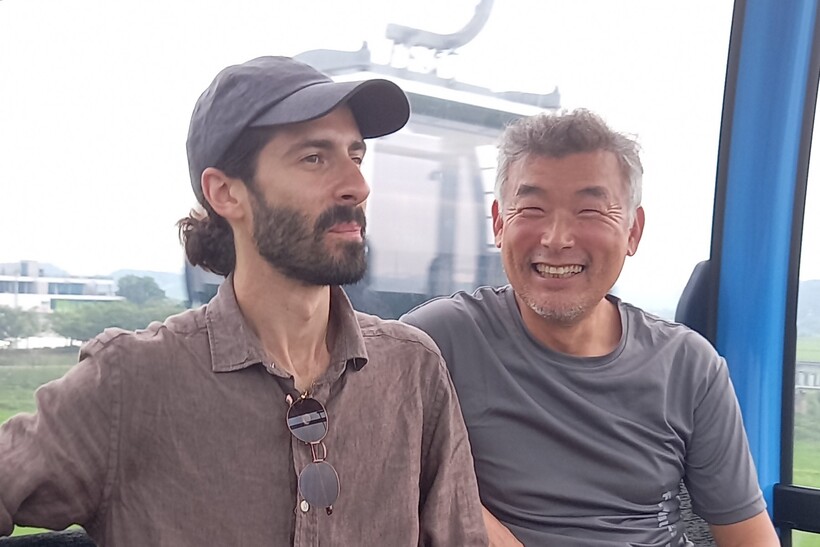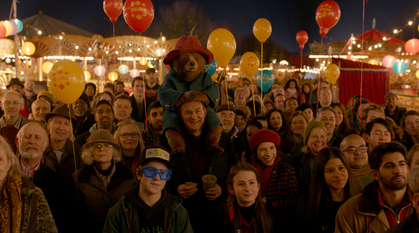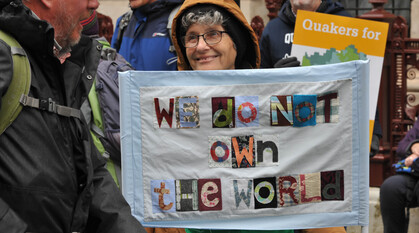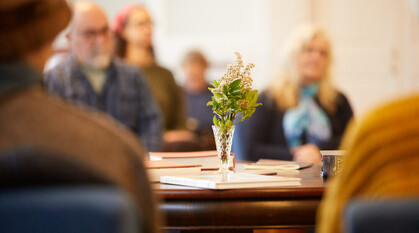A day with Korean Quaker Bongsoo Kwag
David Mowat toured South Korea in August, making friends across the country. He shares with us his interview with Korean Quaker Bongsoo Kwag.

Quakerism has had a strong presence in Korea since the war, with the message of peace and reconciliation finding fertile ground on the divided peninsula.
“There are ten members of Seoul Meeting. So, we can't be active on reconciliation work as we don't have the same resources as in the UK."
This is Bongsoo Kwag, explaining to me the challenges of re-establishing Seoul Meeting in 1997, after he returned from studying Quakerism at Woodbrooke and Bradford.
“I think that they didn't have the foundation in Quakerism that I had in the UK; if you don't have that base Quakerism becomes distorted. Some people don't like this harking back to how British Quakers do things; they see me as too dominant! And they're older and in Korean society which traditionally is hierarchical it's hard to take leadership from a younger person. Or they complain that they have to work and have no time. Korea is a very hard-working society without the concept of giving service to the meeting."
Although Seoul Meeting is small, it is very engaged in nonviolent witness:
“We held loud demos at Gangjeon Village on Jeju island. This lasted many years. We delivered peace education to the activists there protesting the forty thousand US troops expansion at the naval base. I was clerk to Seoul monthly meeting at the time. We created a Quaker base from a container! I was trained in AVP (Alternatives to Violence Project) already at high school. But it's hard in this machismo culture. Men laugh at me. 'You've got to be strong' they believe. The problem is they kill their mentality [their soul] in this way. I believe I've kept in touch with my softer side and people remark that I'm young in spirit."
The situation today
Bongsoo is an enthusiastic businessman and philosopher. Today he's my guide to the post-Korean War Demilitarised Zone (DMZ). We're driving north from Seoul along 'Freedom Road'. The massive Han river is on the left, futuristic skyscrapers on the right. It's another hot humid day. The sound of cicadas dominates each time we step out of the car. Billowing cumulus alternate with sharp blue and the distant skyline is full of verdant mountain tops.
“You are seeing the miracle of the Hangang River. Just after the war we were nothing," he explains. Holding his belly he says, “Koreans are accessing their spirit of 'Han' to become strong again." Check out this beautiful article explaining the meaning of Han.
Topics jump around. Bongsoo is preoccupied by organising the next Asia and West Pacific Central Executive Committee Section gathering in Seoul due in October. So much seems to fall on his shoulders and he's far from retiring from his cosmetics business.
He points out his old school amidst the concrete giants, Osan High, also attended by his mentor, the famous Quaker known as the 'Korean Gandhi' Ham Sok-Hon.
“After the Korean war and the Quaker relief effort a young guy, impressed by these Quakers, set up Seoul Meeting in 1961. At the time Ham Sok-Hon was very influential. He came to believe that Christianity was too narrow and became a Quaker. His was a very nonviolent deeply thoughtful way to social change. He frequently got in trouble with the authorities. He never belonged to any political group and was nominated twice for the Nobel peace prize.
“He was influential in the 1960 April revolution and 1980 Gwangju Uprising" – two important movements against authoritarian rule in South Korea. “Some people became conscientious objectors after hearing him. I was a Buddhist at the time and after three years in his company I became a Quaker. He taught ancient classics like Lao Tzu. He died in 1989."
The DMZ and hope for the future
As a businessman Bongsoo is doing his bit for reunification, as he employed women from North Korea through the Kaesong special industrial zone – a cross-border project quashed by the US in 2016.
There's mounting excitement as we approach the DMZ. Our talk is of the impeaching of the South Korean president last December.
“Koreans put their corrupt politicians in jail. My friend is a Greek businessman and tells me 'We never put our presidents in jail, but you do. So, you see Korea can change'."
At the DMZ we find a rusting steam engine marking the end of a bombed bridge. A cable car takes us to the opposite bank of the Imjin River across emerald paddy fields to eerily peaceful – and mined – vistas where once the cold war's bloodiest conflict had reigned. Near here was the 1951 Imjin River Battle between the UN's 'Glorious Gloucesters' and Chinese communist forces.
These still-visible legacies of war are a reminder of the vital importance of Quaker values of nonviolence and reconciliation.


